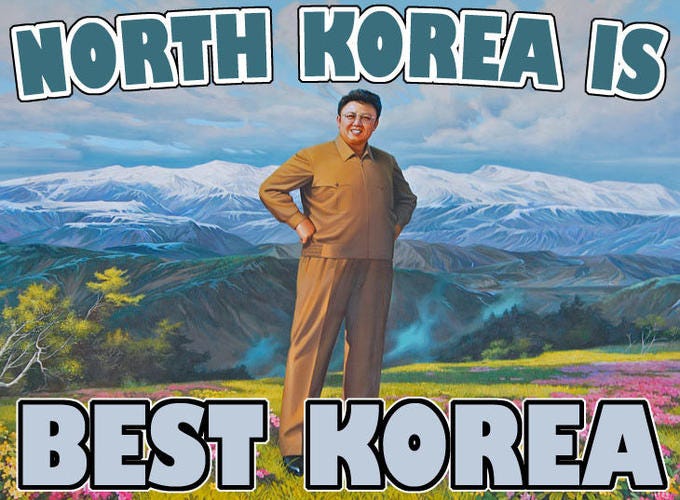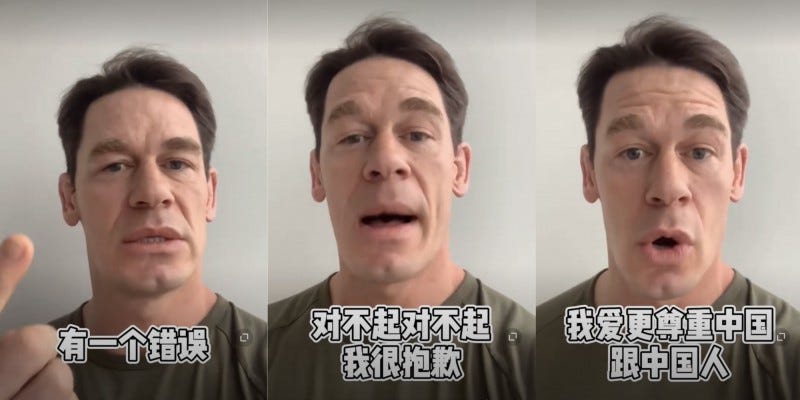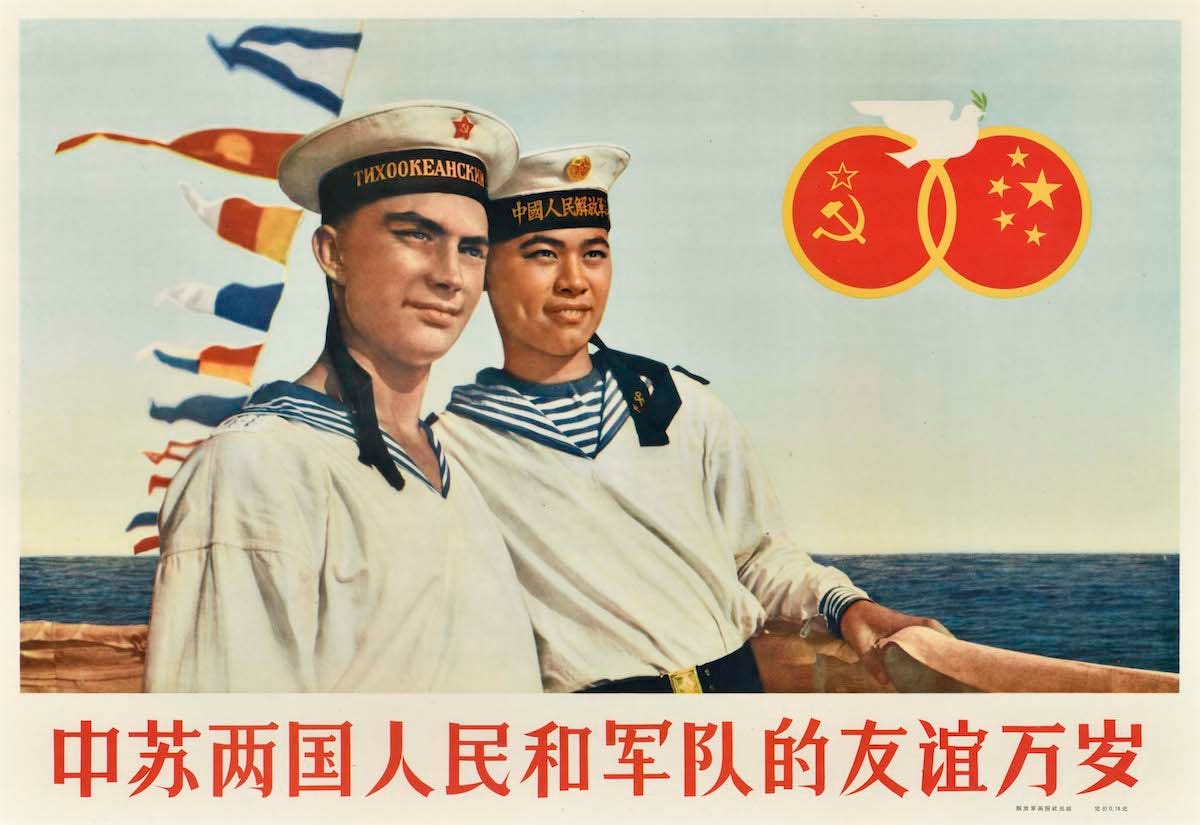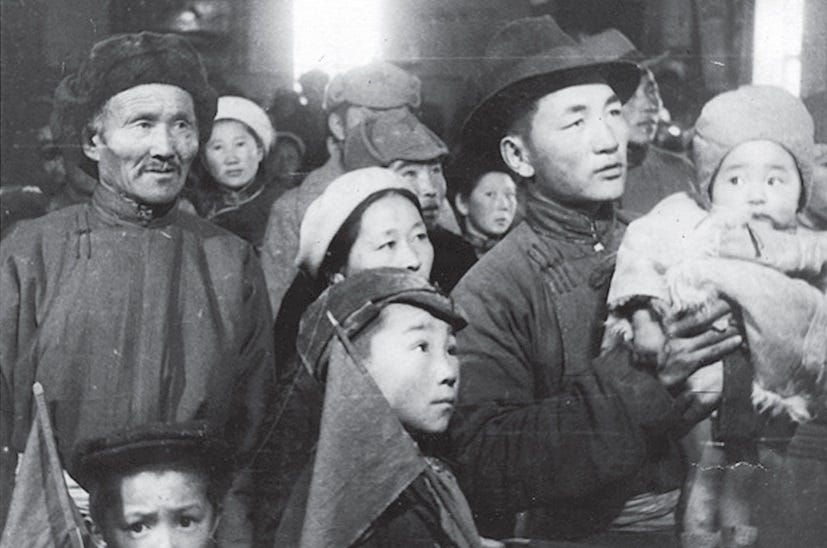The Chinese Space Race, Bad China Takes, Russia's Pivot to Asia, and The Journey to the West
Highlights from recent ChinaTalk episodes
Aside from writing this newsletter, I host a weekly interview-based podcast also called ChinaTalk with a nearly 200 episode strong catalog! This week, I’m running a quick roundup of some recent highlights. Check out these four recent ChinaTalk shows you may have missed, all available on Spotify and Apple Podcasts (links at the end of each abridged transcript).
If you’d like to get an ad-free feed of all future episodes, please consider subscribing to the newsletter via Substack or Patreon and I’ll send you a private RSS feed.
Edited by Callan Quinn
1) Bad China Takes on China Twitter
@BadChinaTake, an anonymous twitter account that combined vicious takedowns of, well, bad china takes with a blog that does deep dives into everything from tankie subcultures to China’s Xinjiang policy, is one of the best things to hit China twitter. BadChinaTake was recently unmasked as Jake Eberts, a young DC-based China analyst.
Jordan Schneider: What is a bad China take?
Jake Eberts: There are four recurring archetypes: mystic China knowledge, death to China, tankies and bootlickers.
Mystic China knowledge is anyone who makes bizarre assertions about East Asian culture. A subset of this is where someone takes a Chinese word or characters and breaks it down to its constituents.
A classic example is talking about 危机 as danger plus opportunity. It’s the Chinese equivalent of saying “what's the opposite of progress? Congress”, and then passing that off as deep, fascinating and insightful.
Jordan Schneider: Death to China, what’s that?
Jake Eberts: Those are typically the hard right, although occasionally it’s more liberal types in Taiwan or Hong Kong, or people who are sympathetic with Taiwan or Hong Kong, who are convinced that the Chinese Communist Party and the People's Republic of China are a blight on the earth.
The problem is that for a lot of people, it comes from a place of genuine trauma and anger that has been exacted on them by the Chinese government.
In that sense there is a legitimate, angry response there. The frustrating part is when that turns into a really bigoted and blinding rage.
Jordan Schneider: Tankies.
Jake Eberts: They tend to lionize everything from a bizarre smattering of countries under the guise of anti-imperialism, place like Russia, Iran, China, Cuba, Vietnam and North Korea.
Some of them are nominally communist, but others like Iran are not all like the other ones.
Jordan Schneider: The psychology of “death to China” being driven by your family and friends being wounded by the CCP regime is one that kind of makes sense to me. I have a harder time understanding the underlying motivation here.
Jake Eberts: I wrote an essay about it actually once because I was fascinated by these people.
What has to be going through your mind to look at the Democratic People's Republic of Korea and think this place is great?
My first thesis was that these were people on the left who had become super disillusioned with the status quo. They go communist as a means of not falling into total nihilism about the state of the world.
Now I lean more towards it being LARPing. A lot of them are literally teenagers.
Jordan Schneider: Bootlicking.
Jake Eberts: Bootlicking describes someone who has a lot of interests in maintaining status in China. They aren't necessarily Marxist-Leninist, but go out of their way to make sure that everyone knows that they think China is great.
It's mainly the catch-all for a lot of the Western people who pop up in state media and have a vested economic interest in making things in China seem to be super perfect.
Photo: John Cena was accused of being a bootlicker earlier this year after apologizing for calling Taiwan a country.
Check out this episode on Apple or Spotify.
2) SpaceX, Elon and their Chinese Imitators
How did SpaceX revolutionize the global space industry? To discuss SpaceX's origin story and secret sauce, guest Eric Berger, author of Liftoff: Elon Musk and the Desperate Early Days That Launched SpaceX, joins the show. Cory Fitz, author of the TaikoNautica newsletter on China's space industry, cohosts and shares his perspective on the Chinese launch ecosystem.
Jordan Schneider: One of the most interesting themes of your book is the hiring philosophy that Musk took with his engineers. What was it like as a young engineer working in those early days?
Eric Berger: SpaceX was pretty much your whole life.
They were working 80 or 90 hours a week. Elon had a great talent for identifying brilliant, hardworking, young engineers. He was great at motivating them by giving them difficult challenges and enough resources to solve those challenges.
Jordan Schneider: It's interesting thinking about this story in the context of 996 culture in China, where folks working at e-commerce and social media companies are getting burned out and really frustrated.
Photo: Jack Ma has spoken out in support of 996 work culture.
When you see people happy to hand their lives over to an organization is when they truly believe in the mission and feel like they're doing meaningful work.
Eric Berger: Imagine if you had gone to work at SpaceX in 2005 and gotten in on the ground floor of the Falcon One program. Now, 16 years later, SpaceX has flown 110 missions.
But imagine if you'd gone to NASA in 2005 and gotten in on the ground floor of the Orion space program.
Orion has flown one mission without a crew on a boilerplate spacecraft to about 3,600 miles above the surface of the Earth. And it may fly a second mission next year.
Jordan Schneider: Cory, let's do a brief history of Chinese space companies during that time.
Cory Fitz: Around 2012 China decides to officially open up private investment into into the aerospace industry and you have a number of launch companies formed.
But I would say that the big thing to note with China that I think is really distinct from the US is that it's not just that China has industrial policy; they also have state-owned enterprises.
I don't really see China getting to the point where they're putting these smaller private companies in charge of any kind of government systems in the same way that SpaceX has been awarded contracts to take things up to the international space station.
I think that's the fundamental difference in the kind of tension in the Chinese system. They want private investment. They're also not really sure how far they want that to go.
Photo: Galactic Energy’s first orbital launch.
Check out this episode on Apple or Spotify.
3) Russia's Pivot to Asia From Czars to Putin
How did Russian imperial ambitions and expansionism eastward change over time? Joining me on this episode is Chris Miller, author of We Shall Be Masters: Russian Pivots to East Asia from Peter the Great to Putin. Chris is a history professor at the Fletcher School and Eurasia Director at the Foreign Policy Research Institute. Cohosting is independent researcher, journalist and fellow at the Wilson Center’s Kennan Institute, Kamil Galeev.
Jordan Schneider: I want to talk a little bit about Xinjiang. How did successive Russian governments think about to what extent they actually wanted that part of the planet?
Chris Miller: If you think about how Russia expanded its influence into the territory we today call Central Asia, in the non-Chinese portions of Central Asia it was really a process that accelerated in the middle of the 19th century.
It wasn't the case that Russia put a stamp on a policy document that said we must take over Central Asia. It was rather a series of steps that ended up with Russia annexing most of Central Asia. And as part of that process, Xinjiang was always on the table as a place Russia might push into.
And indeed by the middle of the 18th century, Russia had consulates and a number of cities, Kashgar and others, which could have just been consulates or they could have been beachheads for further imperial expansion.
When you think of logistics at the time, although it was a very long way from Moscow to Kashgar or Moscow to Urumqi, it was also a really long way to Beijing.
So it wasn't at all clear that the Russians had worse logistics in terms of supply lines than the Qing did. And, of course, the Qing empire in the late 19th century faced a series of crisis, including the Taiping rebellion, rebellions in Yunnan and the various wars with Europeans.
If you were going to cut off one piece of Qing empire territory that was low value and hard to control, Xinjiang probably would have been it.
But if you're going to go for Xinjiang, that would mean the risk of a war with China. The head of the Russian general staff at the time in the 1870s, who had to plan for a war with China, said Russia was like a comet, with a core in Europe and a long tail that stretches all the way across the Eurasian continent.
China could strike at any different point on the tail of the comet and sever supply lines.
Kamil Galeev: But I think that during that period, it was potentially more realistic for Russia because Xinjiang, as well as most of the outskirts, was not really considered part of China.
Many Chinese nationalists the late 19th, early 20th centuries, didn't want keep these places as part of China, for example Liang Qichao.
He believed that they should all go their own way. It's also interesting how the idea of the Qing empire transformed into the idea of territorial unity in Chinese People's Republic, which retrospectively sounds obvious, but it wasn't.
Chris Miller: So maybe the first question is why didn't Xinjiang become like Mongolia? There was always huge divisions internally in Xinjiang as to what was wanted by the “people”, which is to say that all of the Russian analysis in the 19th century about Xinjiang politics involved different ethnic and religious groups.
There was a sense from the beginning that there was no unified view. It wouldn't be easy to say we're going to grab Xinjiang and the populace will welcome independence from China.
Instead, when Russia was most engaged in Xinjiang, which was in the 1860s and 1870s during the Yaqub Beg rebellion, that was a time in which Xinjiang faced all sorts of internal conflicts. It didn’t seem like an easy place to govern.
There wasn't one representative of Xinjiang that could go to Russia and ask for help to become independent, because it was always obvious that Xinjiang itself was never unified under one kind of political entity.
If such a person existed, Xinjiang would now probably be the East Turkistan Republic.
Photo: Mongolians waiting to vote in a referendum on independence from China in 1945 (the country had however also declared independence several times over the preceding decades).
Check out this episode on Apple or Spotify.
4) Mao and the Monkey King
Julia Lovell, author of Maoism: A Global History and The Opium War: Drugs, Dreams and the Making of China, discusses translating Journey to the West for English audiences. We are joined by translator Brendan O'Kane as co-host.
Jordan Schneider: I'm curious, what was this novel's reception in the Mao era?
Julia Lovell: Mao loved the novel. In 1966, at the start of the cultural revolution, Mao was rereading it and he invoked Monkey as a model to incite student red guards to attack the Communist Party establishment.
But the focus on Monkey’s rebellion had really begun around 10 years earlier in the 1950s.
In a climate in which any cultural artifact written before 1949 was vulnerable to attack and criticism, it's striking that Journey to the West is not attacked in the same way.
That said, the novel is very much chopped and changed to fit a message that suits Mao’s manifesto of rebellion and revolution.
In the original, of course, Monkey gets into terrible trouble with heaven and is punished and has to redeem himself.
The first seven or so chapters is Monkey's rebellion and the rest of the remaining 93 chapters is Monkey having to make good on the terrible things that he's done.
But the 1950s adaptations on stage and opera, and then in film and cartoon, effectively ended the novel at the end of chapter seven, at the end of Monkey's rebellion against heaven.
Rather than monkey being chastised and pinned under a mountain by the Buddha, its a victorious Monkey that brings down old, oppressive heaven.
It's very easy to see how this changing and reshaping of Journey to the West fits with Mao's own political vision of the masses overthrowing the elites and the establishment.
There's also a wonderful animated version of the book done between 1960 and 1965, in which the Jade Emperor, the bad guy trying to keep Monkey down, has a very, very noticeable mole on his chin, as did Mao.
The rumor went that the Jade Emperor with his mole had actually been a dig at Mao, and one of the important reasons why it was ultimately censored for many years is because of this not-so-veiled criticism.
Check out this episode on Apple or Spotify.
Have thoughts, comments or ideas you want to share about this week’s ChinaTalk? Leave your feedback in the comments!
Thanks for reading,
Jordan









